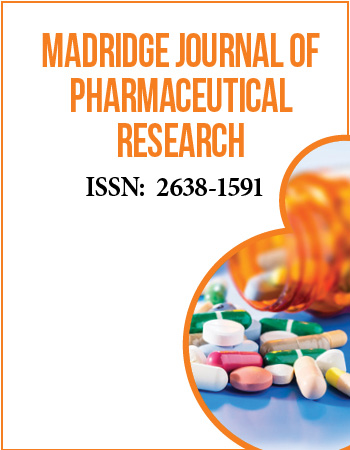2nd International Conference on Pharma & Nutrition, Health and Aging
August 1-2, 2019 Valencia, Spain
Biogenic Amines and Antioxidant Determination in “Plant Milks”
Sapienza University of Rome, Italy
“Plant milks” are water-based beverages extracts from cereals and pseudo-cereals. Plant milk consumption is rising in European and North American markets due to lactose allergies and intolerances, but also because of vegan diets and sensitivity to environmental issues. There is no specific regulation for these beverages, therefore their composition can vary considerably. The aim of this study is to characterize the main categories of cereal and pseudo-cereal milks on the market by studying the profile of 8 biogenic amines (histamine, serotonin, spermine, spermidine, putrescine, β-phenylethylamine, cadaverine, tyramine) by RP-HPLC/FD and the antioxidant content, using ABTS and DPPH assays. Biogenic amines (BAs) are ubiquitous compounds, produced by amino acids decarboxylation. Consumption of food containing high concentrations of BAs may however have serious toxic effects on the consumerʼs organism, as erythema, tachycardia, dyspnoea and hypotension or hypertension. In the analyzed samples, the total biogenic amines content ranged from 1.92 mg/L to 9.27 mg/L. The main biogenic amine found in the samples was histamine. The results show a low content of biogenic amines in all types of analyzed products.
The analysis of antioxidant capacity, via the scavenging of free radicals as DPPH and ABTS, was performed on the samples extract. Decrease in absorbance for DPPH was measured at 515 nm while for the ABTS at 734 nm, by UV-Vis spectrophotometer. In the samples, the inhibition rate (I%) for both tests is similar for all plant milks. The DPPH ranging from 77% to 99%, except for rice milk (I% = 40%), despite of the I% of ABTS ranged from 88% to 99%. The results show, that plant milks analyzed, have a good antioxidant content for each variety considered. The low biogenic amines content and the high antioxidant capacity ensure the quality and safety of cereal and pseudo-cereal milk samples.
Biography:
Lucia Maddaloni is a PhD candidate in Commodity Sciences at Management Department of Sapienza University of Rome. In 2016, she obtained a bachelorʼs degree and in 2018, a masterʼs degree in “Nutrition Science and Human Nutrition”. Both were obtained at University of Campus Bio-Medico of Rome. She works at the Commodity Science Laboratory and collaborates with the departmentʼs team, focused on the characterization of food commodities, their production process and their environmental, economic and social sustainability.


